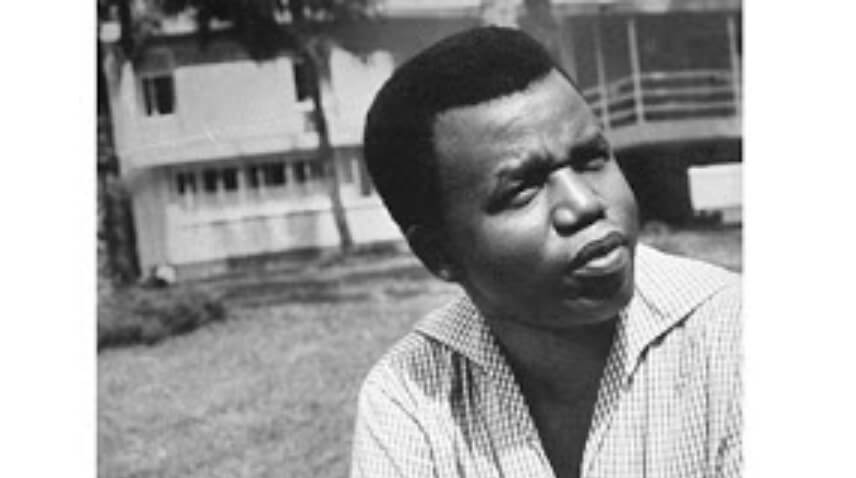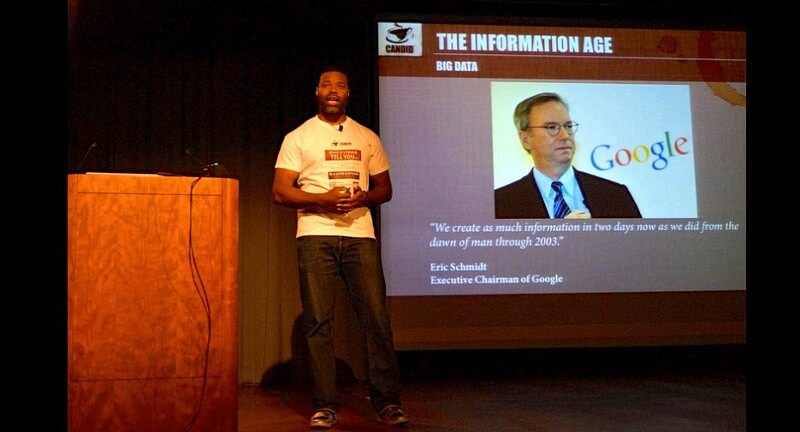

Things Fall Apart, by Chinua Achebe, written in 1958, many critics agree, was in response to Joseph Conrad’s Heart of Darkness in which the Polish-born British writer demeaned and debased Africans to justify the colonial masters’ lust for power and control in Africa. Post-colonialism is defined as an attempt to re-imagine and re-write colonial ideals that disfigured, distorted, and displaced the histories and cultures of indigenous populations.
Although Achebe wrote Things Fall Apart a year before Nigeria won its independence from British hegemony, neighboring countries, such as Ghana had already gained their independence from the British, so Achebe knew the writing was clearly on the wall for his country to follow suit. In many respects, Achebe reacted because in Conrad’s frenetic desire to satisfy his master’s quest and vindication for imperialistic domination in Africa, he described Africans as uncivilized, savage, people with the faces of some of them looking like people wearing masks.
Conrad writes: “They shouted , sang,; their bodies streamed with perspiration; they had faces like grotesque masks” (17). However, Conrad comments sarcastically on colonialism, which he describes as predicated on skin pigmentation. “The conquest of the earth, which mostly means taking it away from those who have a different complexion or slightly flatter noses is not a pretty thing when you look into it too much” (10).
Achebe feels this ugliness about colonialism in Things Fall Apart and the need for a re-structuring of colonial discourse of which Heart of Darkness is one. A profound reading of Things Fall Apart reveals the subjugation and deception the British subjected the Igbo tribe of Nigeria and by extension, some Africans before independence.
Painting Africans as uncivilized, barbaric, and uncouth, the British found an excuse to colonize them by masking themselves in what Walter Rodney describes as the Three M’s: first as merchants, then as missionaries, and finally, as mercenaries. Indeed, the thematic overlay of paranoia, postcolonialism, and (un)love in Things Fall Apart and the film(s), The Gods Must BeCrazy, the colonization of an African village and the crudity of the Bushman in which the colonizers disguise their intentions as merchants, missionaries, and mercenaries to impose their cultures and beliefs on the indigenous people in satisfaction of Western imagination and taste.
Things Fall Apart is the first in a trilogy of books by Achebe that questions the impact of colonialization on a Nigerian Igbo village. Things Fall Apartis regarded as the most widely read novel by a black African author. While some critics regard Things Fall Apart as a profound reaction to Conrad’s The Heart of Darkness, others have antithetical opinions. As Flowers points out, “Achebe reports that it was his anger at what he took to be the caricatures of Nigerians in Joyce Cary’s Mr. Johnson which initially inspired him to write a counter-narrative sympathetic to the indigenous perspective” (qtd. in Snyder 154). Indeed, whether Things Fall Apartis a response to Conrad or Cary is an after-thought.
What is critical, even crucial is the fact that Things Fall Apart is a novel that caters to Western imagination and taste as the protagonist, although in his homeland, becomes a marginalized black body that is portrayed as a savage, brutal, unsympathetic, heartless anti-hero devoid of affection. In effect, as much as Achebe attempted to re-envision and re-write colonial texts, he ended up propagating and perpetuating the stereotype of the black body as a subaltern. No wonder the other two books in the trilogy, No Longer at Ease (1960) and Arrow of God (1964) were not as successful as Things Fall Apartbecause in them, Achebe detours from his characterization of his protagonists as savages and heartless souls devoid of affection.
Similarly, James Uys’s The Gods Must Be Crazy (I) and (II) produced in South Africa are films that dance to the tunes of Western idealization of the marginalized black body. Keyan G. Tomaselli writes that “within four days of the release of Gods I in South Africa in October 1980, it had become the biggest earner ever. By mid-1985, in the United States, the film became the highest foreign earner, overtaking the 1979 hit LaCage aux Folles, and it has earned well over $100 million worldwide” (172).
Here, the interplay of the intertextuality of Western concepts of taste and imagination about the alterity nature of the black body in Things Fall Apartand The Gods Must Be Crazy sharply converges. In The Gods, the concept of the black body revealed as a noble savage, pica ninny, and Uncle Tom are familiar stereotypes that the West identifies with. Even as the black body is marginalized and denigrated as such in The Gods Must BeCrazy, the film reveals the white body as kind, loving, and god-like that is perpetually in motion as exemplified by the Land Rover.
In effect, the white body is the “God” that omnisciently and omnipotently controls and directs the actions in the film. Donald Bogle provides a vivid interpretation of what it means to be an Uncle Tom. Bogle points out: “Always as toms are chased, harassed, hounded, flogged, enslaved, and insulted, they keep the faith, n’er turn against their white massas, and remain hearty, submissive, stoic, generous, selfless, and oh-so-very kind. Thus, they endear themselves to white audiences and emerge as heroes of some sorts” (6). Pickaninnies, on the other hand, are portrayed as eye-popping naked children whose least excitement results in hair-raising ordeals in satisfaction of their curiosities. Because of their nakedness, they are viewed as noble savages. Thus, the two naked children in The Gods Must Be Crazyare the pickaninny type while the Bushman patriarch is the Uncle Tom.
The poetics and hermeneutics of novel and film converging at some points and separating in other areas make interesting intertextual juxtaposition. Obviously, the protagonist in the novel is the indigenous Okonkwo while the Bushman becomes Okonkwo in the film. Mr. Brown’s Other is Mr. Stein in the film while Sambaha is a synecdoche of Mr. Smith and the British soldiers that annihilated the villages. The confluence of the two protagonists involves shooting incidents that result in the banishment of both characters.
While Okonkwo accidentally shot a sixteen-year-old boy fatally, the son of one of his friends, the Bushman shot his poisoned arrow into a goat and killed it. Both of them are ostracized for their actions; Okonkwo is banished to the village of Mbaino for seven years while the Bushman is sentenced to three months in prison. Michel Foucault metaphorically extrapolates the idea of banishment as a form of punishment in Discipline and Punish. In his essay, “Panopticism,” Foucault introduces the concept of the leper and the plague to illustrate the methods society uses in excluding and disciplining the deviant in hopes of transforming them and others with similar behavioral tendencies.
Those who commit crimes are given the “leprosy” treatment and excluded from society while those who out of confusion commit less serious crimes are given a second chance. The latter group is disciplined and returned into society. As Foucault asserts,“Underlying disciplinary projects, the image of the plague stands for all forms of confusion and disorder; just as the image of the leper, cut off from all human contact, underlies projects of exclusion” (199). Okonkwo falls into the category of the first group (the leper group) while the Bushman is elevated to be in the second group.
Source: Dr. Samuel O. Doku; professor and a writer. He earned his Ph.D. in English with concentration in African American Literature from Howard University. He is a W.E.B. Du Bois scholar whose book is titled Cosmopolitanism in the Fictive Imagination of W.E.B. Du Bois: Toward the Realization of a Revolutionary Art. His articles have been published on Google Scholar, in the International Journal of English Language, Literature and Humanities, and College English Association Magazine (CEAMAG).
Oral Ofori is Founder and Publisher at www.TheAfricanDream.net, a digital storyteller and producer, and also an information and research consultant.





